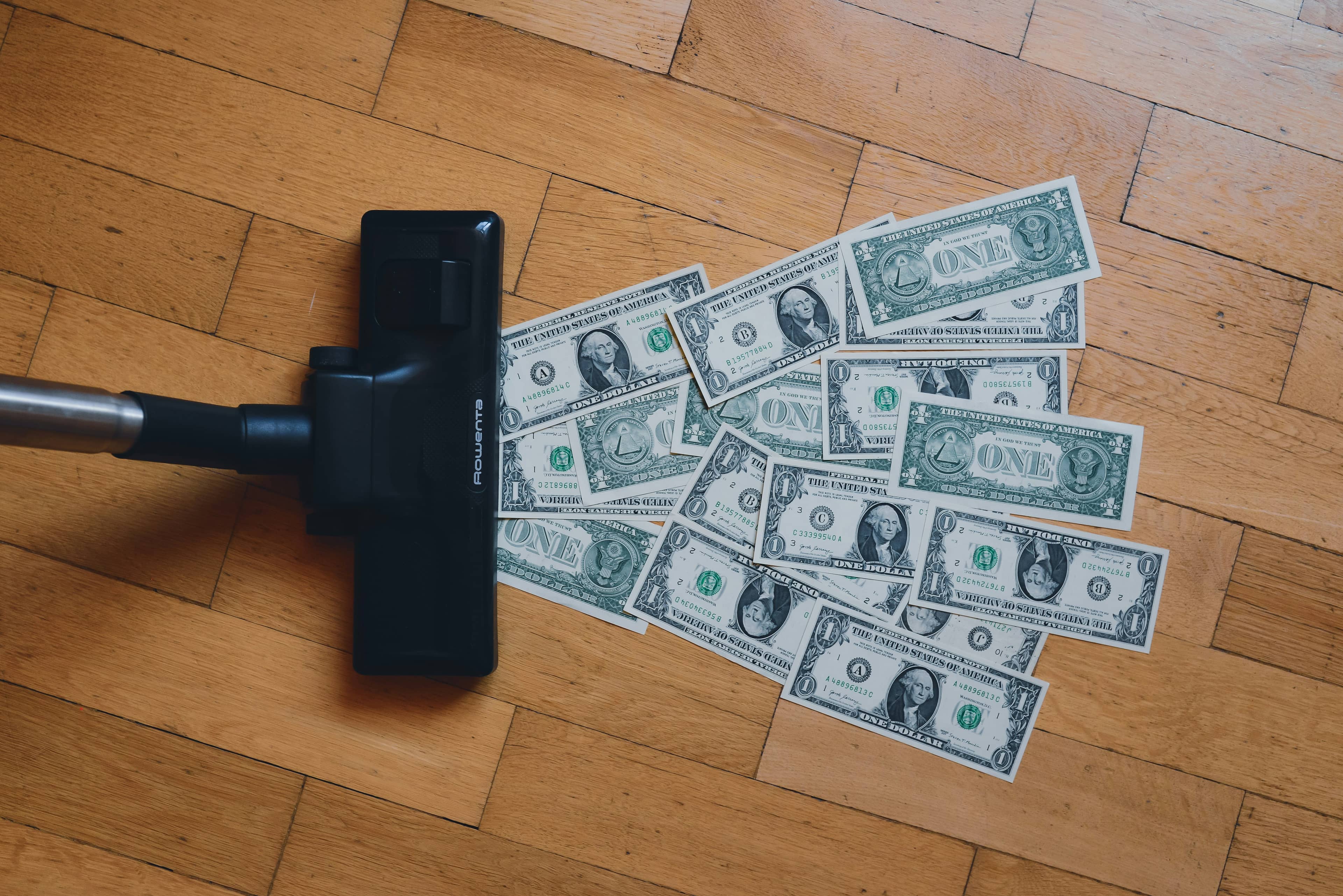Have you ever downloaded a budgeting app only to delete it weeks later because it felt more like rocket science than money management? You're not alone. A recent study reveals that 100% of users experienced navigation issues when testing feature-heavy banking apps, proving that when it comes to financial software, more isn't always better.
Welcome to the era of digital detox for your wallet - where simplicity isn't just preferred, it's essential for your financial well-being.
The Hidden Cost of Financial App Overload
Picture this: you have seven different financial apps on your phone. One for banking, another for investments, a third for budgeting, plus apps for crypto, savings goals, expense tracking, and bill reminders. Sound familiar? Research shows this is the exact tipping point where digital tools start hindering your financial decisions rather than helping them.
This phenomenon, dubbed "app fatigue," is creating a surprising problem in personal finance. Instead of feeling more in control of your money, you're drowning in notifications, jumping between platforms, and spending more time managing apps than actually managing your finances.
The irony? Financial companies keep adding features thinking they're helping, but they're actually overwhelming users with cognitive overload. When your budgeting app requires a PhD to navigate, something's gone seriously wrong.
Why Your Brain Craves Simple Money Management
Let's talk about what happens in your head when you open a complex financial app. Your brain immediately starts processing multiple streams of information: charts, graphs, categories, subcategories, alerts, and recommendations. This creates what experts call "cognitive overload" - essentially, your brain's way of saying "nope, too much."
Simple apps work because they align with how your brain naturally processes information. When you can add an expense in three taps - amount, category, done - you're more likely to actually do it. Compare that to apps requiring you to navigate through multiple screens, set up complex rules, and manage dozens of categories.
The magic happens when technology gets out of your way. You want to track spending, not learn a new software system. You want insights, not information overload.
The Rise of Minimalist Financial Tools
Financial experts across the country are noticing a clear trend: people are gravitating toward apps that do less, but do it exceptionally well. This isn't about dumbing down your finances - it's about smart simplification.
Consider what really matters for most people's financial health:
- Knowing where money goes each month
- Staying within spending limits
- Tracking progress toward goals
- Managing shared expenses with family
That's it. You don't need 47 different chart types or AI-powered spending predictions that change daily. You need clarity, consistency, and tools that actually encourage regular use.
The best financial apps are following Apple's design philosophy: prioritize essential functionality over feature count. When every element serves a clear purpose, the entire experience feels natural and effortless.
Real Talk: The Pros and Cons of Going Simple
The Good News: Simple apps eliminate the learning curve that kills motivation. When you can start tracking expenses immediately without reading tutorials or watching setup videos, you're infinitely more likely to stick with it long-term. These streamlined tools reduce setup effort and provide just the essentials needed to understand your spending patterns.
The convenience factor is huge too. You can access your financial overview anytime, anywhere, without navigating complex menus or waiting for detailed reports to load. Many simple apps also automate the basics - like categorizing common expenses - while keeping you in control of the big picture.
The Reality Check: Extremely basic apps can lack features you might eventually want. If you're managing multiple investment accounts, complex business expenses, or detailed tax planning, a minimalist app might feel limiting. The trade-off is real: as simplicity increases, advanced functionality typically decreases.
There's also the risk of becoming too hands-off. When apps automate everything, you might engage less actively with your actual financial decisions. The goal is finding tools that inform without overwhelming, not ones that think for you.
Breaking Free from "Finance Fatigue"
Here's a term that perfectly captures our current moment: "finance fatigue." It's the burnout that comes from information overload in money apps - too many notifications, too many features, too many decisions about how to track every dollar.
The solution isn't to avoid technology altogether. It's to be intentional about which tools you invite into your financial life. Consider adopting a minimalist approach:
Keep only essential apps: One primary banking app, one simple expense tracker, maybe one investment platform. That's it. Delete the rest.
Turn off non-essential notifications: Constant market alerts and spending reminders create decision paralysis, not better financial choices.
Focus on key metrics: Instead of tracking 20 spending categories, focus on 5-7 that actually matter for your goals.
Choose tools you'll actually use: The best budgeting method is the one you'll stick with consistently. If complex software feels overwhelming, embrace simplicity.
Meet Your Digital Detox Solution: Monee
While researching simple financial apps, I discovered Monee - a budget and expense tracker that embodies everything we've discussed about effective financial simplicity. Named "Best Budget & Expense Tracker App 2025" with a 4.9/5 rating from over 4,000 reviews, it's designed around a core principle: put yourself back in control of your money without the complexity.
Here's what caught my attention: adding an expense takes literally seconds. Amount, category, optional note - done. No mandatory account linking, no complex setup, no overwhelming dashboard. Just clean, straightforward money tracking.
The app handles shared household expenses seamlessly, supports unlimited accounts for different goals or family members, and includes practical features like recurring transaction tracking. But here's the kicker - it's completely free, contains no ads, and performs zero data tracking. Your financial information stays entirely private.
What really sets Monee apart is its respect for your time and mental energy. You can set flexible budget periods that match your pay cycle, export your data anytime, and access everything across iPhone, iPad, and Mac with smooth syncing. It's the kind of tool that gets out of your way so you can focus on what matters: understanding and improving your financial habits.
Making the Switch: Your Action Plan
Ready to simplify your financial life? Start with a digital audit. List every finance-related app currently on your phone. Then ask yourself: Which ones do I actually open regularly? Which ones help me make better money decisions versus just providing more data?
Try the "one-month test" with simpler alternatives. Can a basic expense tracker give you the insights you need without the complexity? Often, the answer is yes.
Remember, the goal isn't to track every penny with scientific precision. It's to develop sustainable awareness of your spending patterns and make informed decisions about your money. Sometimes, the simplest tools are the most powerful.
The Bottom Line
Your financial well-being doesn't require complex software - it requires consistent attention and smart habits. In our rush to optimize and track everything, we've forgotten that the best financial tools are often the simplest ones.
The next time you're tempted to download that feature-packed budgeting app, ask yourself: Will this make managing money easier or harder? Your future self - and your bank account - will thank you for choosing simplicity.
Sources:



